TURNING INTO TODAY
The Vietnam War: A Turning Point
for Black American Rights
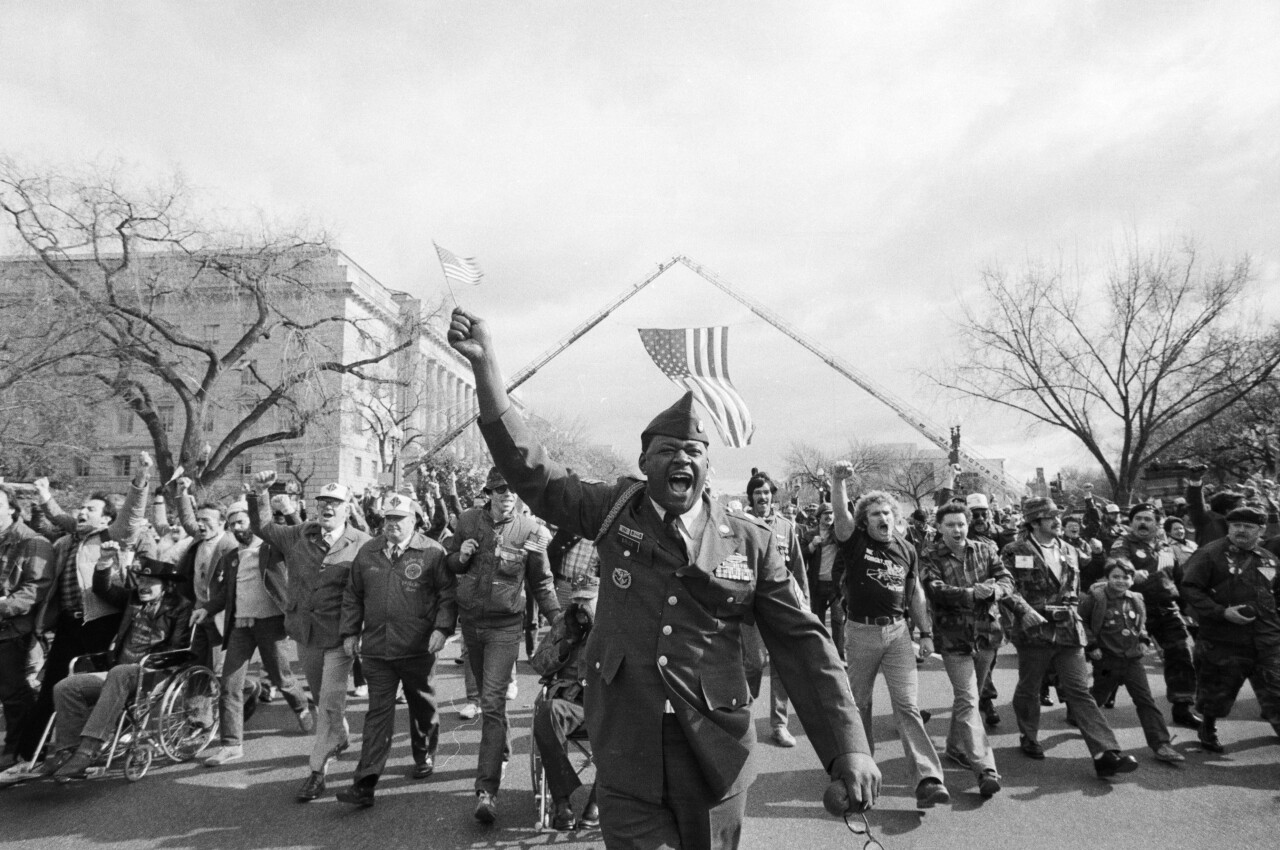
"Vietnam Veteran Parade" November 13, 1982. Retrieved from the Bettmann Archive
"When they came back, there was a lot of anger about the war. Some [veterans] were spat on in airports, and that hurt a lot... Psychologically, many people couldn’t separate the war from the warrior." Jan Scruggs, Founder and President of the Vietnam Veterans Memorial Fund.
The Veteran Sacrifice
Returning Black Vietnam War veterans faced post-war challenges such as stigma, as well as incarceration and unemployment at alarming rates.
"Black veterans were over twice as likely as white veterans to not be employed full-time, and were struggling to find jobs that would support them beyond manual labor." Times Magazine
Despite this, their sacrifices initiated significant reforms within the military and broader society; opportunities increased, but slowly.
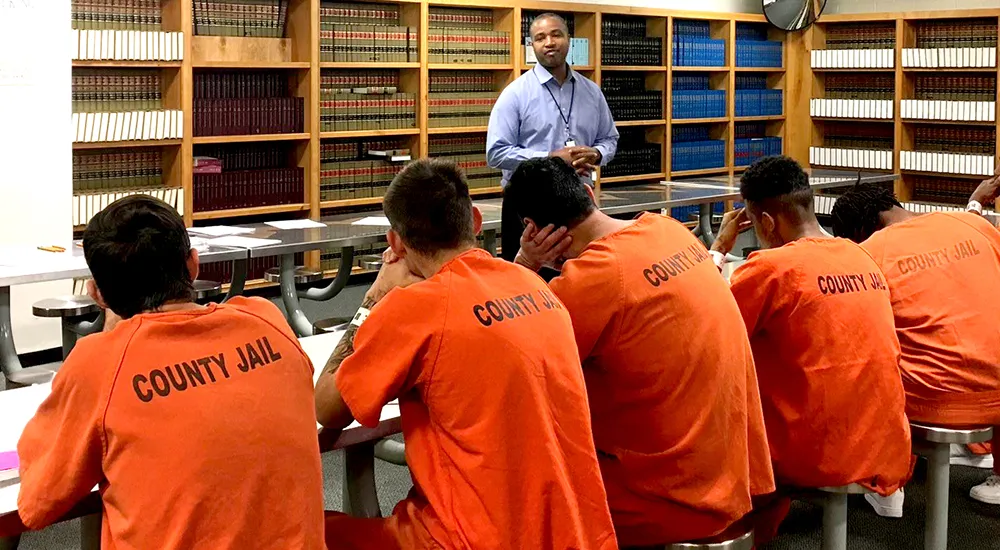
“Henry Molden, Veterans Justice Outreach Specialist, helping incarcerated Veterans.” 2022. Retrieved from the United States Department of Veterans Affairs
"Great art isn’t created in benign, complacent times like we’re living in now. It’s created when there’s a deeply tortured feeling in the culture, when everything is in disarray." Film Director Arthur Penn
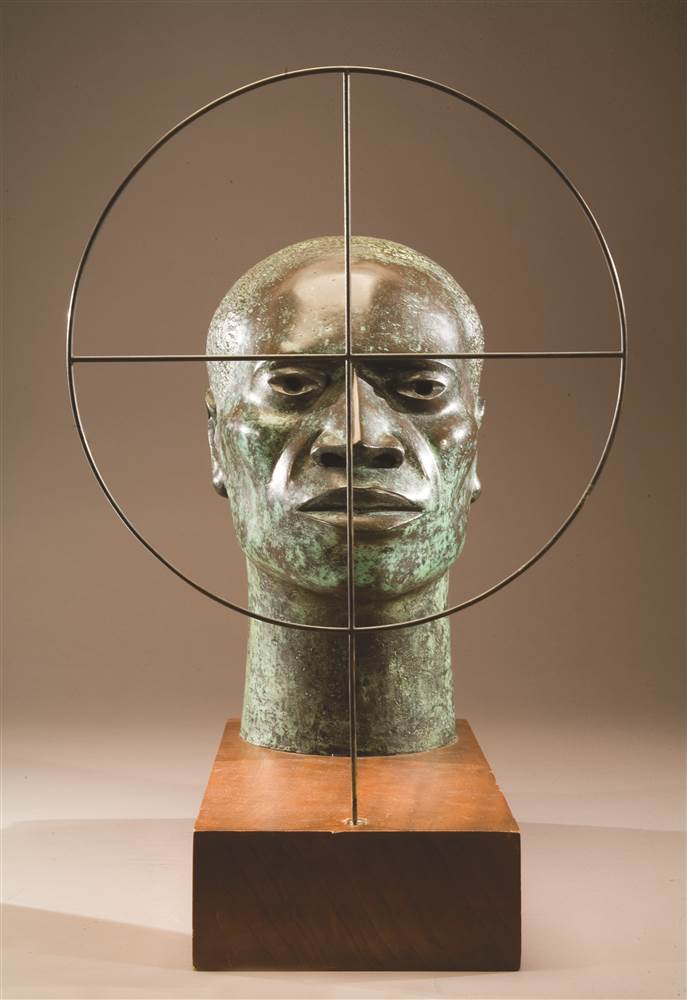
Elizabeth Catlett. "Target" 1970. Retrieved from Cshock.
From the Critics: A Cultural Legacy
Cultural representations in artwork, literature, and films also highlight Black American experiences and sacrifices during the Vietnam War.
"This provocative work shows a black male behind a gun sight, a powerful reminder of an ugly racist reality in both historical and contemporary America... The impact of Target, however, extends even further to the thousands of anonymous people of color, mostly but not exclusively younger males, who are routinely subjected to racist harassment and attacks by police and others throughout the United States." Paul Von Blum, Senior Lecturer in African American Studies and Communication Studies at UCLA, Truthdig
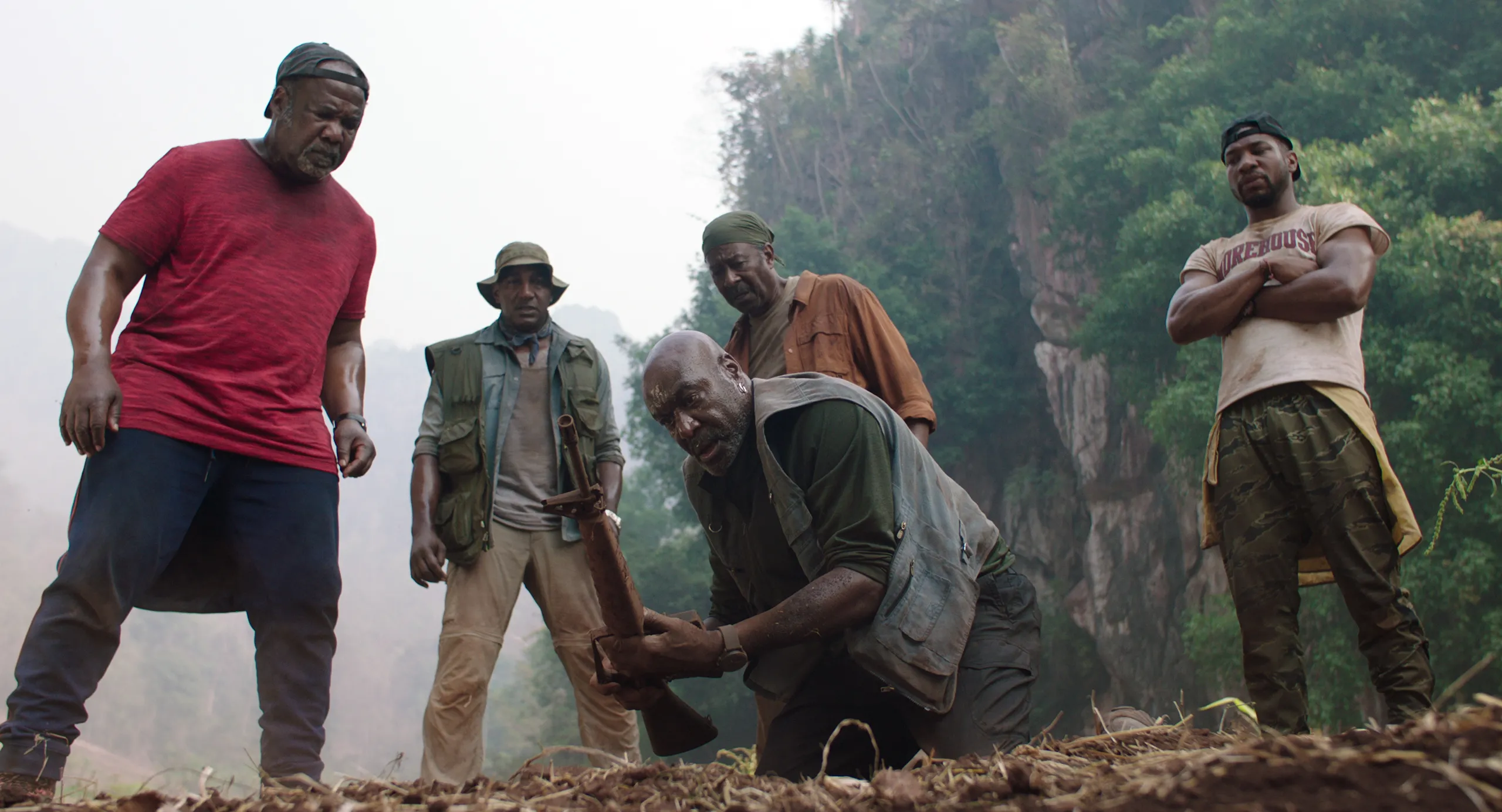
Da 5 Bloods. Retrieved from The Guardian
"Lee has taken the battle-scarred old movie trope of Vietnam and found something relevant and intersectionally complex: black people, because they largely didn’t have the contacts or resources to avoid the draft, or to finesse the avoidance of dangerous frontline duty, found themselves engaging the enemy and being a major though under-reported part of the Vietnam story." Peter Bradshaw, The Guardian
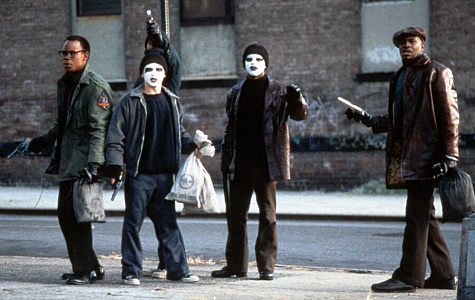
Dead Presidents. Retrieved from IMDb
"Though the title 'Dead Presidents' is slang for the dollars in a climactic robbery scheme, the story is far broader than that. Ranging from 1968 to 1974, it concerns a young man named Anthony who goes from a black neighborhood in the Bronx to the Vietnam War and back again." Caryn James, The New York Times
"Our military has also reached this level of excellence because we attract the best America has to offer: young men and women across the land and beyond our shores who not only love our country and share these values, but who also represent a wide range of creeds, religions, races, ethnicities, sexual orientations, and other attributes that not only distinguish us as individuals, but also make us stronger when combined together." Mark Esper, Secretary of Defense
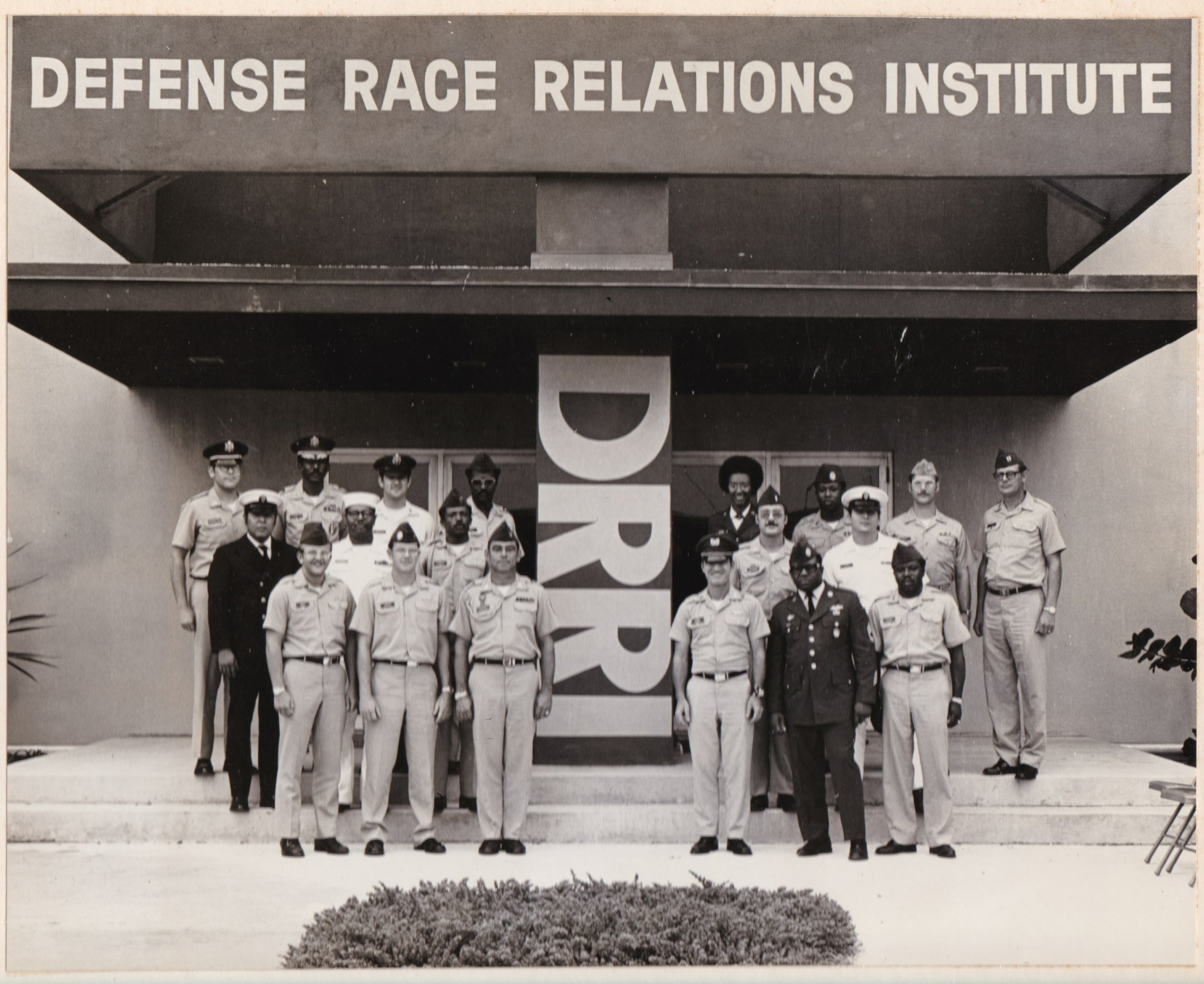
Defense Race Relations Institute. Retrieved from the Defense Equal Opportunity Management Institute
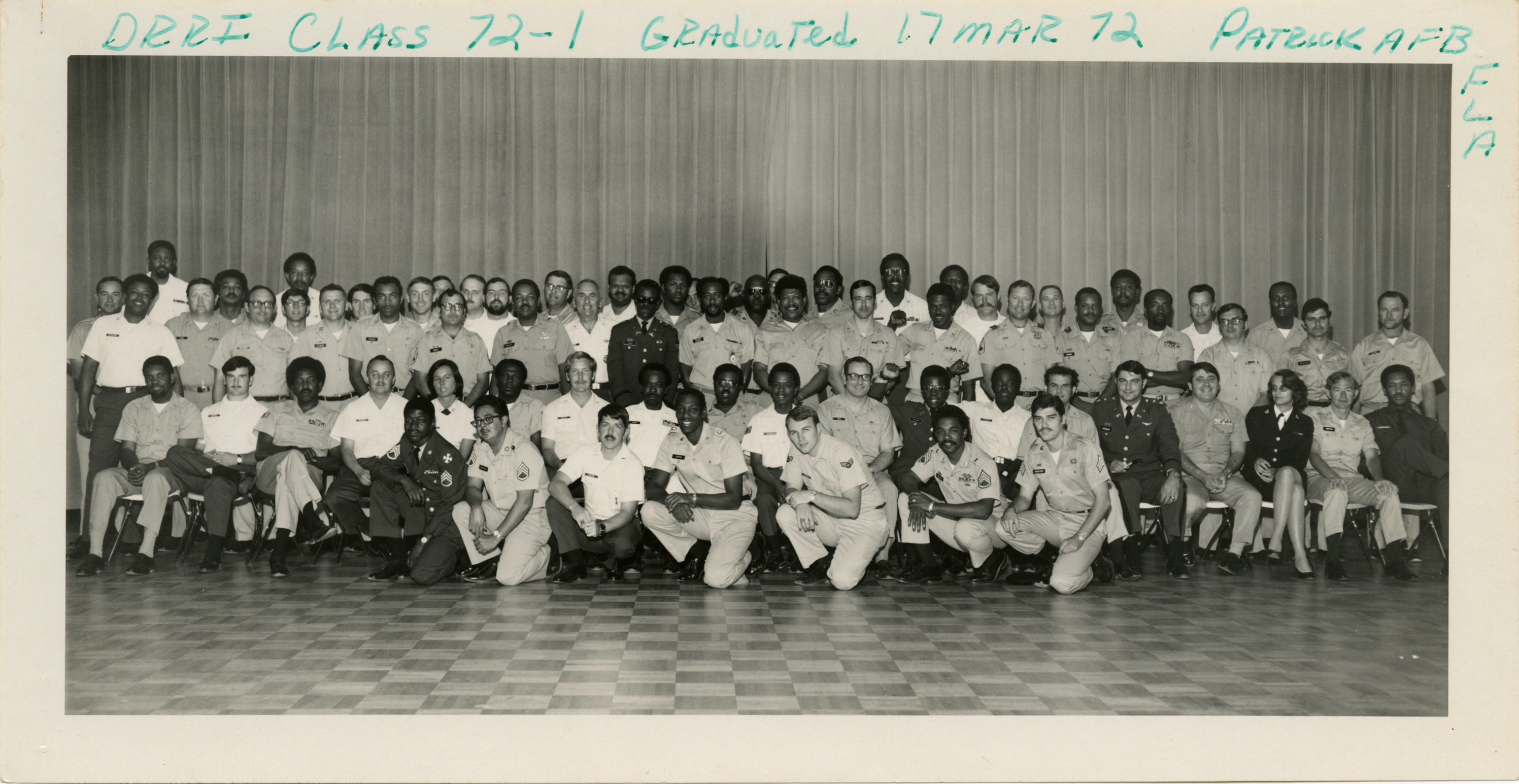
Defense Race Relations Institute. Retrieved from the Defense Equal Opportunity Management Institute
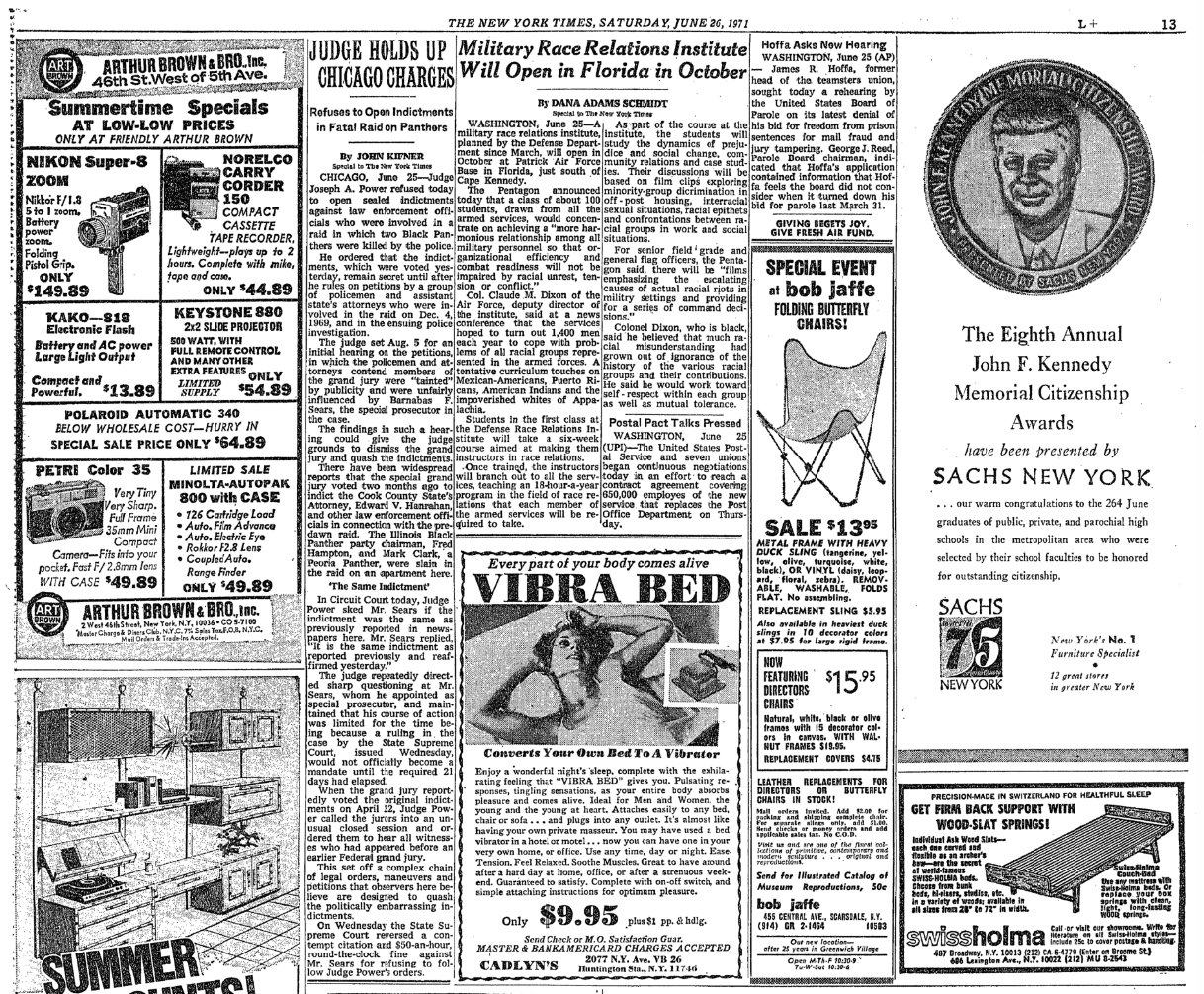
"Military Race Relations Institute Will Open in Florida in October." June 26, 1971. Retrieved from The New York Times Archive
“From race blind... to race conscious.”
"My research right now is trying to think about how this massive institution tried to manage a racial crisis, and I look at the series of actions that the army took—a whole of variety of actions that range from the predictible actions of education and training to an emphasis on cultural sensitivity to visible leadership and affirmative action." Beth Bailey, Professor of History at the University of Kansas
The Department of Defense launched reform initiatives, establishing the modern day Defense Equal Opportunity Management Institute in 1971, thus promoting greater diversity and tolerance among leadership.
"Secretary of Defense Melvin R. Laird announced today a major new program that will require every man in the armed forces to attend classes in race relations. Mr. Laird said the instruction would be given as the men entered the service, with six‐hour refresher courses given every year thereafter. The new program, coordinated with, an existing network of interracial councils, will be operated by a Defense Race Relations Institute that is to train 1,400 instructors within one year. Those instructors will then fan out through the armed services." Dana Adams Schmidt, The New York Times
"The War within the War: Race in Vietnam - Beth Bailey." February 26, 2020.

"The Pentagon helped develop the Defense Race Relations Institute to address the armed forces' 'problem of race.' Two DRRI staff tested the initial curriculum for this 1971 photo." Retrieved from KCUR
"But in the long run, the only way to stop the inequities is to stop using the system." Richard Nixon, 1968
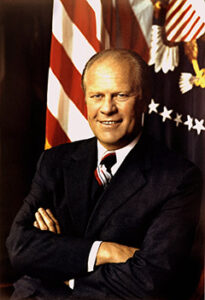
Gerald Ford. Retrieved from Albion College
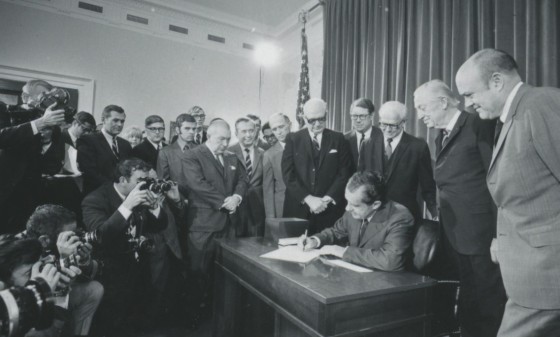
“President Nixon signs the amendment to the Military Selective Service Act of 1967 on November 26, 1969.” Retrieved from the Richard Nixon Foundation.
Influenced by protests and shifting public opinion, the American military transitioned to an all-volunteer military under President Richard Nixon in 1972 and implemented The Vietnam Era Veterans' Readjustment Assistance Act of 1974 under President Gerald Ford.
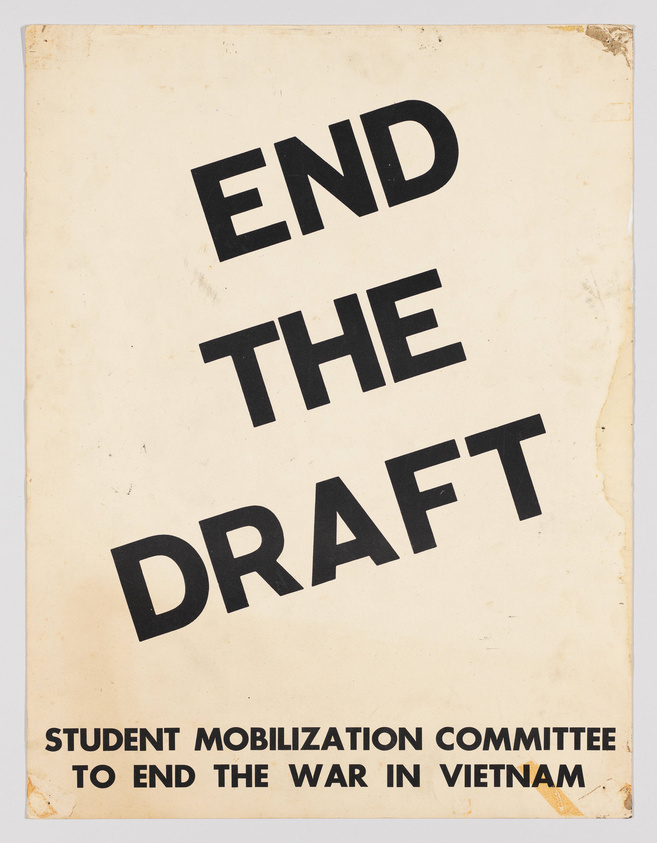
"End the Draft." Circa 1960-1970. Student Mobilization Committee to End the War in Vietnam
Inclusive Leadership
Thanks to the cultural and policy reforms, recent years have seen milestones in officer ranks, with Darryl A. Williams becoming the first Black superintendent of United States Military Academy and Charles Q. Brown Jr. was appointed as the first Black Chief of Staff and, later, the chairman of the Joint Chiefs of Staff. These individuals, in return, are working to make the military more diverse.
"I’m thinking about my historic nomination to be the first African-American to serve as the Air Force Chief of Staff. I’m thinking about the African-Americans that went before me to make this opportunity possible. I’m thinking about the immense expectations that come with this historic nomination, particularly through the lens of the current events plaguing our Nation. I’m thinking about how I may have fallen short in my career and will likely continue falling short of living up to all those expectations. I’m thinking about how my nomination provides some hope, but also comes with a heavy burden—I can’t fix centuries of racism in our country, nor can I fix decades of discrimination that may have impacted members of our Air Force. I’m thinking about how I can make improvements, personally, professionally, and institutionally, so that all Airmen, both today and tomorrow, appreciate the value of diversity and can serve in an environment where they can reach their full potential." Chairman of the Joint Chiefs of Staff Charles Q. Brown
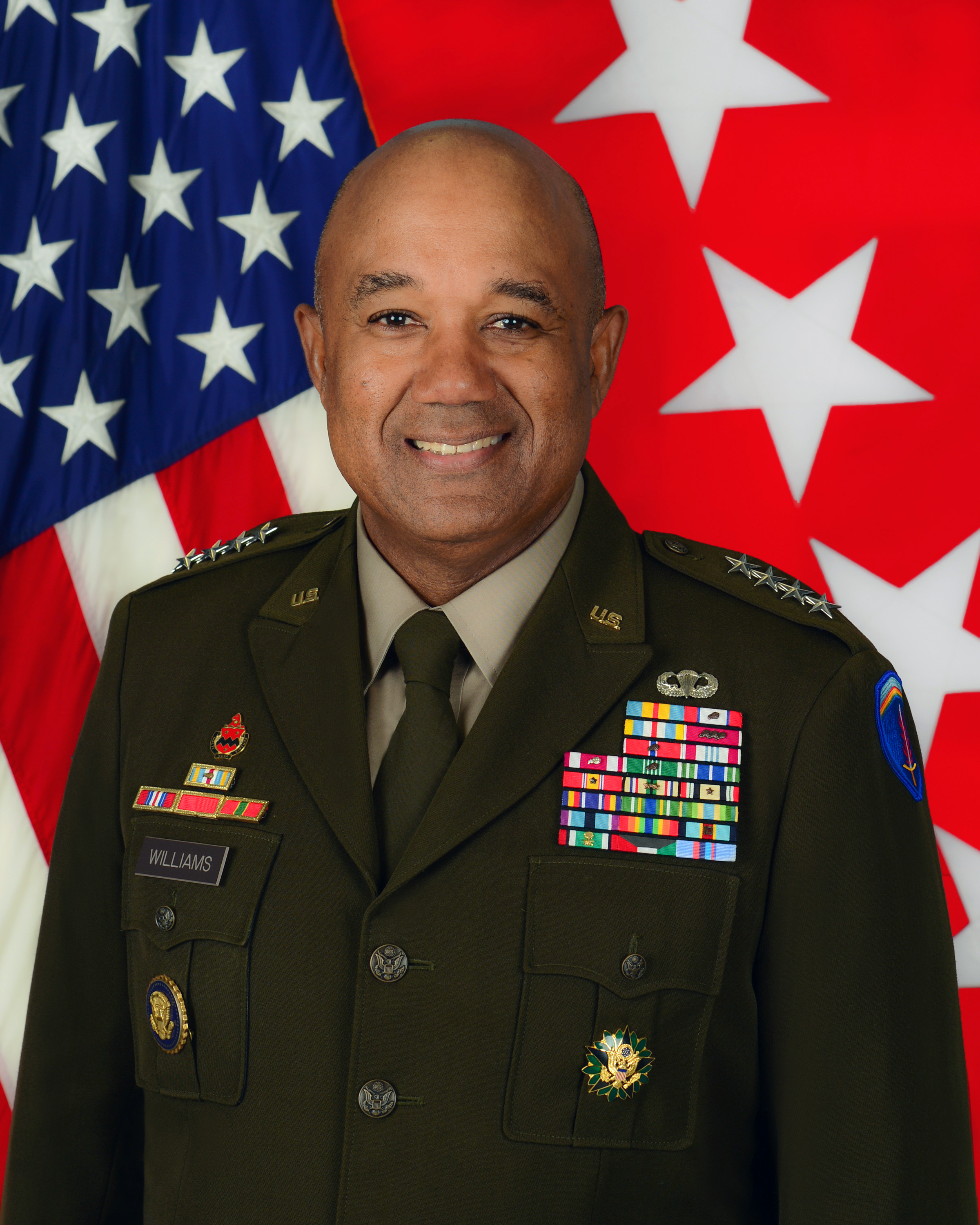
"Commanding General, Gen. Darryl A. Williams" (Courtesy of the United States Army Europe and Africa)
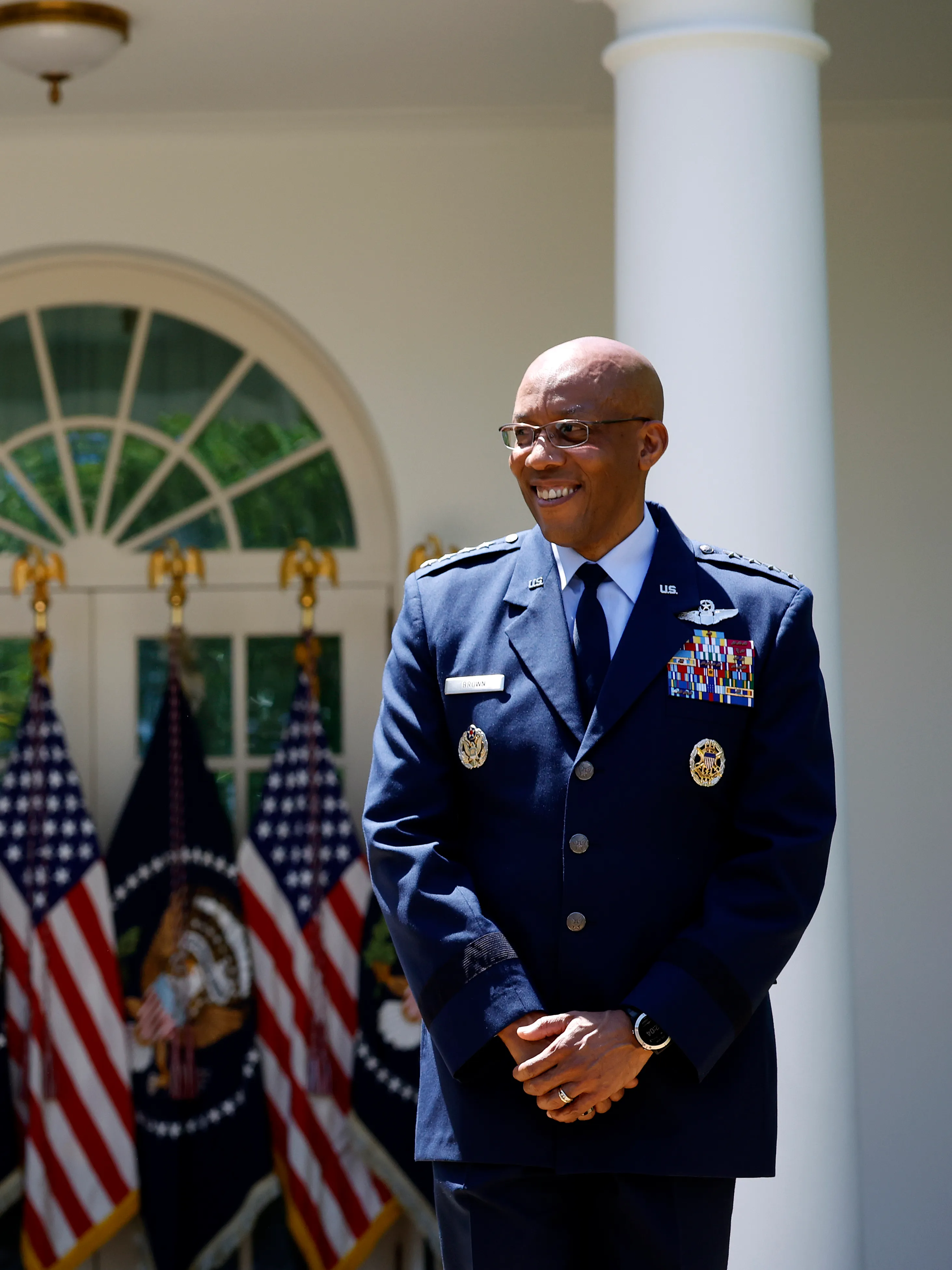
"GENERAL CHARLES Q. BROWN, JR." (Courtesy of the United States Air Force)
“Racism has no place at the United States Military Academy... We are committed to eradicating racism within our ranks. Ultimately, it's a readiness issue, because racism breaks down trust and cohesion necessary for cohesive winning teams... The academy expects all cadets to be treated with dignity and respect... We take seriously all forms of racial inequality that marginalize or devalue members of our team." Former United States Military Academy superintendent and current Commanding General Darryl A. Williams
Ultimately, the heightened involvement of Black Americans in the Vietnam War precipitated a dramatic turning point in perceptions, bridging racial divides and influencing broader civil rights movements. Through their struggles and sacrifices, Black soldiers not only reshaped military dynamics but also led a profound shift in societal attitudes, fostering greater acceptance and recognition of Black individuals in both contemporary military and political spheres.
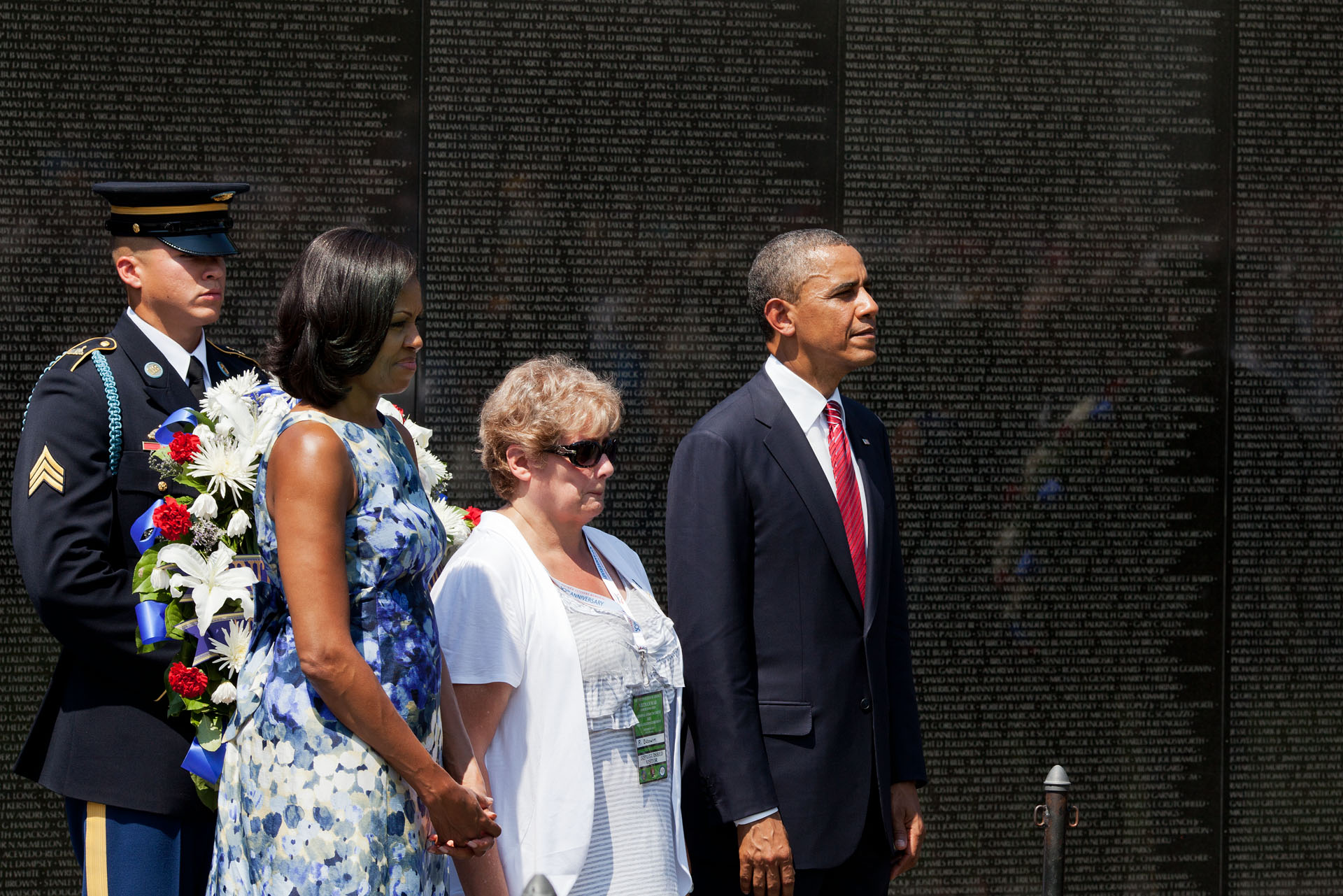
President Obama Celebrates U.S. Troops on Memorial Day. May 28, 2012. Retrieved from the Obama White House Archives
"Veterans, families of the Vietnam War, I know the wounds of war are slow to heal. You know that better than most. But today we take another step. The task of telling your story continues. The work of perfecting our Union goes on. And decades from now, I hope another young American will visit this place and reach out and touch a name. And she’ll learn the story of people she never met, who fought a war she never knew, and in that moment of understanding and of gratitude and of grace, your legacy will endure..."
"For you are all true heroes and you will all be remembered." President Barack Obama